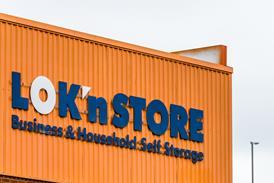In an uncertain climate, cutting cost is often integral to business strategy. So it may come as a surprise that corporate real estate managers are increasingly ranking employee engagement and talent attraction and development ahead of cost when it comes to corporate real estate strategy. This was one of the key findings from the 2019 CBRE EMEA Occupier Survey.

The evidence from this year’s survey demonstrates that strategies across space, skills and service are converging, linked by the growing aim of attracting, retaining and engaging talent. Specifically, there are four areas where occupiers are emphasising their efforts:
Procurement and fit-out strategy: While traditional procurement and fit-out approaches were still favoured when taking large leases in a new building, the survey found that occupiers were increasingly influenced by internal building characteristics. Nearly 60% of occupiers would be willing to pay a premium of at least 10% over typical prime rents for a curated high amenity offer under a service agreement.
Flexible space strategy: Corporate appetite for flexible space continued to grow, with the proportion of companies expecting to make significant use of flexible space over the next three years 20 percentage points higher than those who currently do so. Increasingly, a number of companies are also using flexible space as part of a wider attempt to experiment with different workplace and occupancy models.

User experience strategy: Formal user experience (UX) programmes aimed at curating the full range of workforce needs across workplace, amenity and service are still not being widely used. Only around a third of companies have a formal UX programme, or plan to introduce one. However, a third of companies have plans to hire a UX lead and two thirds would be willing to pay a premium for a building in which the landlord has provided an enhanced UX offer.
Technology strategy: Technology disruption, particularly AI and machine learning, is becoming a key driver of technology strategy. Seventy per cent of companies intend to raise their level of real estate technology investment in the next few years towards a more people-focused direction. The methods of acquiring the skills needed to deliver these aims, such as data scientists, are becoming more sophisticated, with corporates pursuing a variety of approaches, including outsourcing to specialists.
There are clear links between all these different areas of strategy. The challenge for companies is to establish an effective approach to each element as well as identifying the synergies available from combining elements of all four. There may be an experimental element to this process since the best solutions are not always obvious, but in general every effort is being made to invest in the best possible environments to make the existing workforce both more efficient and, where possible, more productive.
For more information see: https://www.cbre.co.uk/research-and-reports/EMEA-Occupier-Survey-2019
Ian Entwisle is chief executive of CBRE Global Workplace Solutions APAC/EMEA






























No comments yet